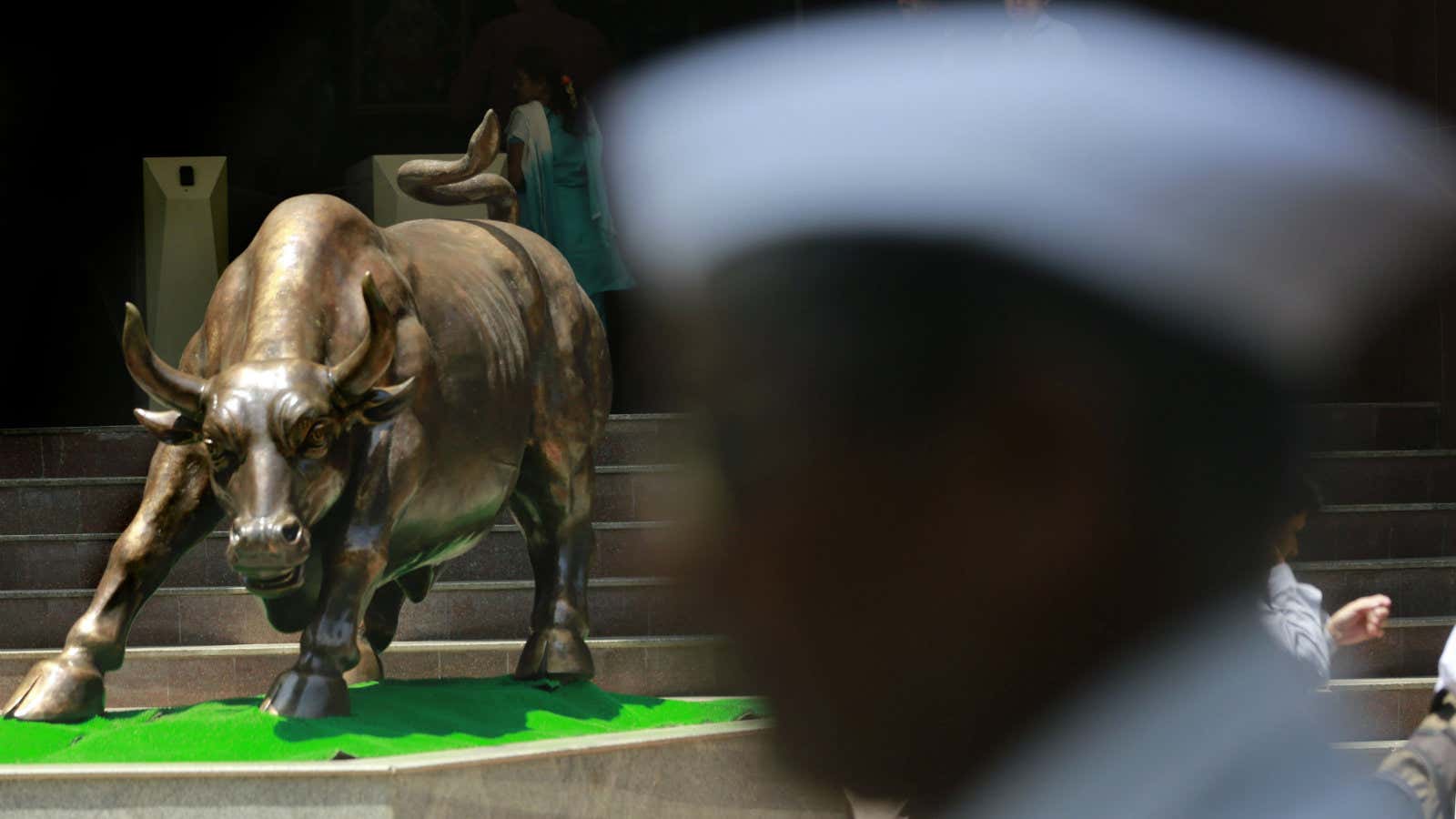After decades of being courted by traditional businesses mostly rooted in the manufacturing sector, India’s stock markets are witnessing a steady stream of listings from unlikely verticals.
Since India’s IPO market took off in 2015 after a long lull, most of the 31 companies that have listed are from non-traditional sectors including micro-finance, e-commerce and dairies.
In 2015, 21 companies hit the equity market in Asia’s third largest economy, according to PRIME Database, a capital markets research firm. So far in 2016, some 10 firms have launched their initial public offerings (IPOs). And at least four of these have been subscribed more than 10 times, signalling robust investor demand.
But few of these belong to sectors like power, infrastructure, FMCG, financial services and IT, which have been the darlings of the market for decades. Here’s a list of companies which launched IPOs in 2016. All data is provided by PRIME Database.
Small is beautiful
Investors are attracted to these small firms because they have solid business models. Micro-finance, in particular, looks like a favourite.
In the last two months, two micro-finance firms launched their public issues and both performed well: Ujjivan’s IPO was oversubscribed 28.76 times while Equitas’ issue drew a subscription of 12.14 times.
“Both Equitas and Ujjivan have a promising model and the valuations aren’t very high,” said Deven Choksey, managing director of KR Choksey, a stock broking firm. “In the micro-finance industry, the reach and opportunity is huge and the coupon size of loans is generally very small so there is no concern for huge defaults, compared to traditional banking.”
India’s banking sector is riled with bad loans. The amount of non-performing loans—where the borrower has stopped making interest or principal payments—in Indian banks is estimated to be over Rs13 lakh crore ($195 billion).
Equitas was founded in 2007 by P N Vasudevan, a banker who had earlier worked for the Development Credit Bank and Cholamandalam Finance. It focusses on individuals and micro-and-small enterprises that aren’t served by the formal banking networks and has a loan book of Rs5,500 crore. Investors in Equitas include Sequoia Capital and International Finance Corp, which is a unit of the World Bank. The firm is one of the 10 companies to have received a small finance bank license from the Reserve Bank of India (RBI).
Small finance banks offer basic products and their main purpose is financial inclusion. They are typically smaller in size and operations compared to traditional banks.
Like Equitas, Ujjivan too, started as a non-banking financial company (NBFC) focusing on micro-finance. Founded by Samit Ghosh, a banker with over 30 years of experience, Ujjivan was set up in 2005 with an initial capital of Rs2.8 crore. The firm was backed by the Michael and Susan Dell Foundation and Unitus, a non-profit that invests in social impact startups. With over 2.5 million active customers, mostly in rural and semi-rural areas, Ujjivan also received a small finance bank license from India’s central bank in Sept. 2015.
This year, online seller Infibeam also hit the capital markets, and became the first e-commerce firm to list on bourses. It raised Rs450 crore, and the issue was keenly watched as an indication for the larger industry and investor appetite.
Here’s a quick look at other top IPOs in 2016, ranked by the amount of money raised:
Parag Milk Foods (Rs742 crore): A dairy manufacturer, Parag Milk Foods runs one of the largest cheese making factories in Asia. Founded in 1992 by Devendra Shah, a businessmen who dealt in clothing before he ventured into dairy, the company owns brands including Gowardhan ghee and Go cheese. Overall, India’s thriving dairy industry is worth $70 billion and is expected to double in size by 2020.
HealthCare Global Enterprises (Rs650 crore): HCG is India’s largest cancer care provider with a network of 24 centres and 350 oncologists in South Asia. Established in 2005 by B S Ajaikumar, an oncologist, the company provides cancer treatment, imaging and laboratory services, clinical trials and research services to over 30,000 patients every year.
Thyrocare (Rs479 crore): A diagnostics firm, Thyrocare was started in 1996 by the son of a landless farmer. After his company’s successful listing, Arokiaswamy Velumani is worth at least $323 million. The firm’s IPO in April was oversubscribed 52 times.
